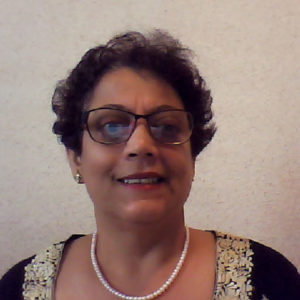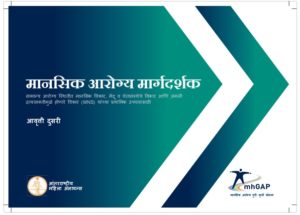According to the World Health Organization, mental, neurological, and substance use disorders are common in all regions of the world, affecting every community and age group across all income countries. While 14% of the global burden of disease is attributed to these disorders, most of the people affected – 75% in many low-income countries – do not have access to the treatment they need. The WHO Mental Health Gap Action Programme (mhGAP) aims at scaling up services for mental, neurological and substance use disorders for countries especially with low- and middle-income.
The mhGAP Intervention Guide (mhGAP-IG) for mental, neurological and substance use disorders for non-specialist health settings, is a technical tool developed by WHO to assist in implementation of mhGAP. The Intervention Guide has been developed through a systematic review of evidence followed by an international consultative and participatory process. The mhGAP-IG presents integrated management of priority conditions using protocols for clinical decision-making. The priority conditions included are: depression, psychosis, bipolar disorders, epilepsy, developmental and behavioral disorders in children and adolescents, dementia, alcohol use disorders, drug use disorders, self-harm/suicide and other significant emotional or medically unexplained complaints. The is a model guide and has been developed for use by health-care providers working in non-specialized health-care settings after adaptation for national and local needs.
WHO encourages translation, adaptation and use of mhGAP-IG in diverse world languages.
 Seema Uplekar, IAW’s representative for WHO and the UN who is currently based in Mumbai in the Maharashtra State of India after about 17 years of stay in Geneva, Switzerland, has long been interested in mental health issues.
Seema Uplekar, IAW’s representative for WHO and the UN who is currently based in Mumbai in the Maharashtra State of India after about 17 years of stay in Geneva, Switzerland, has long been interested in mental health issues.
In line with IAW’s decades of work on women’s issues and at the instance and technical support of the former director of WHO’s mental health department Dr Shekhar Saxena, Seema has translated mhGAP-IG in Marathi, an Indian language of the State of Maharashtra which has a population of 110 million. Marathi is ranked 19thamong world languages and is the 4thmost spoken language in India. It also has a very rich body of literature. IAW acknowledges contribution of several technical and language experts in and around Mumbai who have helped Seema in undertaking this important work.
Like most other world regions, India and the state of Maharashtra also have a paucity of mental health professionals and services. IAW hopes that the Marathi translation of mhGAP-IG will help bring evidence-based and high-quality mental health care within the reach of Marathi speaking people of India.
The WHO website also has versions in English and other languages.
 • Click to read & download the Marathi translation of mhGAP-IG (updated) •
• Click to read & download the Marathi translation of mhGAP-IG (updated) •
Acknowledgement
Firstly, I would like to thank Dr. Shekhar Saxena, director, mental health and substance disorder, World Health Organization. He encouraged me from my very first thought of translation of this guide in 2016. I am also grateful to the support offered by the Pubrights department of WHO particularly by Catalina Gradin, Joelle and Maria Grazia Motturi.
I am extremely thankful to my organization International Alliance of Women, President Joanna Manganara (Greece) and my colleague Gudrun Haupter (Germany) and Lene Pind (Denmark) for letting me take on this work. This translation work necessitated knowledge of Marathi and also Marathi interpretation of mental health terminology. A helping hand from many subject exeperts who are native Marathi speakers made my work relatively easy. I am very grateful to all of them. They include: Vijaya Sawant (Retired Psychology Counsellor, Nair Hospital, Mumbai) Dr. Nilesh Mohite (Psychiatrist, Parivartan Trust,Tezpur, Assam), Shama Todurkar and Amruta Padhey (Assistant Professors of Psychology, SIES College, Mumbai) Shreyashree Datar (Psychology Teacher, Acme Education, Thane) Manasi Joshi (Clinical Psycologist, Nair Hospital, Mumbai) Dr. Neeraja Kanikar (Gynecologist, Nasik), Meet Shinde (Assistant Professor, Psychology, Doshi College, Mumbai) and Swapnil Pange (Clinical Psychologist, Institute for Psychological Health, Thane). I am indebted to Arundhati Munje (Retired Associate Professor, Pendharkar College, Dombivli) who went through the final draft meticulously and gave valuable inputs. I greatly appreciate the voluntary support of Mr. Manek Davar (Chairman and Managing Director, Spenta Multimedia, Mumbai) free of any charges and Ms Bharati Khule who undertook the graphic designing work with patience and responsibility. Finally, I must thank my close friend Suchita Krishnaparsad, my daughters Swapna and Rasika and my husband Mukund for their constant encouragement and moral support. If this guide contributes even partly to filling the gaps in the provision of the much needed mental health care to those people of Maharashtra who need it most, I and all those who supported in this work will feel rewarded.
Seema Uplekar
WHO Representative, International Alliance of Women
July 2018
Expert feedback on the Marathi translation of the mhGAP-IG
Congratulations on successfully finalizing the Marathi version. This will be really useful. I would suggest that you disseminate the version and let it be used without any delay.
I wholeheartedly welcome translation of MH Gap guidelines in Marathi. Seema Uplekar with her team has done a fantastic job by taking lead for this translation. I hope many health professionals who are looking for evidence-based guidelines for the treatment of mentally ill individuals will be immensely benefited due to this.
A huge thank you and congratulations for translating mhGAP in Marathi!I hope the launch goes well and that your work will circulate and be of much help.
I have gone through your translation carefully and they seem to be quite apt and convey the meaning and spirit of the information. I wish you all the best for your inaugural function to launch this translation.
My congratulations on this useful resource and wishing you best for the function. I think the Marathi translation will help in its adoption in Maharashtra and I hope you will make the Dept of Health and Family Welfare, Govt of Maharashtra aware of its availability.
Greetings from our NGO. Heartiest congratulations.The Marathi translation of mhGAP is very thought provoking and as it’s in Marathi has tremendous value for NGO like ours that work at the grassroots level. We look forward to promoting it through the various awareness camps by training the trainer. It is a great reference for our volunteers who are daily coming across people affected with such symptoms and don’t know where to get there answers, This guidance in their mother tongue will be of immense value.



